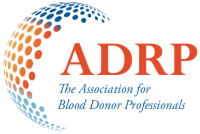Influence of risk perception on attitudes toward blood donation among Brazilian men who have sex with men who donated blood
Full article available for purchase in link provided
Authors
Miriane Zucoloto, Guilherme Galdino, Willi McFarland, Edson Martinez
Abstract
Background
We hypothesize that awareness of individuals’ risk behaviors may influence aspects of attitude toward blood donation (i.e., intentions and self-efficacy). Investigating this association in the population of MSM was the objective of the present study.
Study Design and Methods
This is a cross-sectional study based on an open web survey. The online survey was developed and applied on the Research Electronic Data Capture (REDCap) platform. The study’s information, invitation to participate, and link to access the online survey were disseminated using social media. Analyses were performed using structural equation modeling.
Results
A total of 764 young adults MSM participated, with the majority self-reporting as homosexual, single, in good health, and having completed higher education. A total of 297 (39.5%) reported having donated blood at least once in their lives. Among blood donors, 72.0% admitted to lying about their sexual behavior during the blood donation clinical screening interview; 81.0% did not believe that their behaviors put them at risk for HIV infection; 83.7% believed that their blood is safe enough to be transfused. Structural equation analysis provided evidence that the perception of being at risk for HIV and the perception of having non-safe blood to be transfused contributed to an attitude against future blood donation (explained variance 50%).
Discussion
Attitude plays an important role in blood donation decision-making by young adults MSM. This is the first study to provide evidence that the self-perceptions of being at risk for HIV and having non-safe blood may deter MSM from blood donation.
December 20, 2022
Related Resources
Engaging blood donors as advocates Social media preferences and associations with marketing
Background: Various critical medical procedures would become impossible without blood donations—saving lives in emergencies, surgeries, and chronic conditions like thalassemia. Therefore, it seems crucial to enhance donor recruitment and ensure…
Rethinking the role of older donors in a sustainable blood supply
INTRODUCTION Many countries, particularly high human development index countries, are facing the challenge of an aging population.1 For Blood Collection Agencies (BCAs) in these countries, an aging population poses two…


